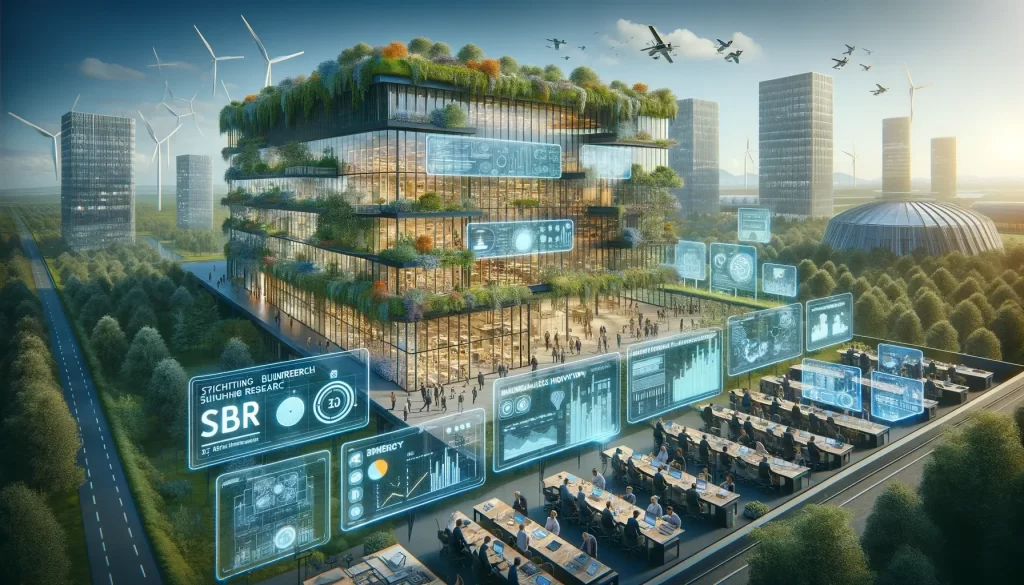Stichting Bouwresearch, often abbreviated as SBR, is an essential organization within the Dutch construction sector. Established in the Netherlands, SBR has contributed significantly to the advancement of research and development in construction, building technology, and sustainable practices. Through its extensive collaboration with industry experts, educational institutions, and governmental bodies, SBR has positioned itself at the forefront of shaping the future of construction.
This article will explore the foundation, goals, impact, and contemporary relevance of Stichting Bouwresearch, shedding light on its pivotal role in the construction industry.
The Origins of Stichting Bouwresearch
Stichting Bouwresearch was established in the mid-20th century, a period marked by post-war reconstruction and rapid urbanization in the Netherlands. During this time, there was a pressing need for research and innovation to address the challenges of building infrastructure, improving housing quality, and responding to the demands of a growing population. Recognizing these needs, a group of industry experts, academics, and policymakers came together to form an organization focused on research within the building sector.
SBR’s primary mission was to act as a knowledge center, collecting, analyzing, and disseminating construction-related research. By promoting collaboration between various stakeholders, SBR sought to improve the quality, efficiency, and sustainability of building projects across the country.
Core Objectives and Mission
The core mission of Stichting Bouwresearch is to foster innovation and enhance the construction industry’s capabilities. The organization’s objectives revolve around several key areas:
- Research and Development: SBR aims to bridge the gap between academic research and practical construction applications. By funding and conducting studies in areas such as materials science, structural engineering, and building methods, the organization ensures that the latest innovations are available to construction companies, architects, and developers.
- Knowledge Sharing: One of the organization’s primary functions is to serve as a knowledge hub for the building sector. SBR publishes research findings, technical guidelines, and industry standards to inform stakeholders about best practices in construction and building maintenance. These publications have been essential for industry professionals seeking to stay up-to-date with the latest technological advancements and regulatory changes.
- Sustainability and Energy Efficiency: As sustainability became an increasingly important issue in the late 20th century, SBR shifted its focus towards sustainable building practices. The organization promotes energy-efficient construction techniques, the use of environmentally friendly materials, and the development of smart building technologies that reduce the environmental impact of construction projects.
- Education and Training: SBR recognizes the importance of continuous learning in an industry that is rapidly evolving. The organization provides training programs, seminars, and workshops for professionals in the building sector, ensuring they are equipped with the necessary skills to meet modern challenges.
Contributions to the Dutch Construction Industry
Standardization and Guidelines
One of the most significant contributions of Stichting Bouwresearch has been its role in standardizing construction practices. By establishing clear guidelines and technical manuals, SBR has helped unify building practices across the Netherlands. This has led to improved safety, efficiency, and cost-effectiveness in construction projects.
SBR’s standards have become benchmarks for professionals in the industry. These guidelines cover a wide range of topics, including building safety, fire resistance, insulation standards, and energy efficiency measures. The adoption of these standards has been pivotal in ensuring that buildings are constructed to high-quality specifications and meet national and international regulatory requirements.
Sustainable Building Practices
In response to growing environmental concerns, Stichting Bouwresearch has taken a proactive stance on sustainability. The organization has been instrumental in promoting energy-efficient buildings, reducing carbon emissions, and developing environmentally friendly construction methods. Through partnerships with research institutions, SBR has helped foster the development of green building technologies that are now widely used in the Netherlands.
For example, the organization has supported research into renewable energy sources, such as solar and wind power, that can be integrated into building designs. SBR also advocates for the use of sustainable building materials, such as recycled concrete and timber from certified forests, to reduce the construction sector’s environmental footprint.
SBR’s efforts in promoting sustainability have had a profound impact on the Dutch construction industry. Many modern buildings in the Netherlands now incorporate energy-efficient technologies and adhere to high environmental standards, thanks in part to the research and guidelines provided by Stichting Bouwresearch.
Innovation and Technological Advancements
SBR has played a crucial role in driving technological innovation within the construction industry. The organization has funded and supported research into advanced building materials, automation in construction, and smart building technologies. These innovations have not only improved the efficiency and quality of construction projects but have also opened up new possibilities for building design and functionality.
One of the key areas where SBR has had a significant influence is in the adoption of Building Information Modeling (BIM) technology. BIM allows for the creation of digital models that represent the physical and functional aspects of a building, enabling better collaboration among architects, engineers, and contractors. SBR has provided training and guidelines to facilitate the widespread adoption of BIM in the Netherlands, making it an essential tool for modern construction projects.
Collaboration with Industry and Academia
Stichting Bouwresearch’s success can be attributed in large part to its collaborative approach. The organization has built strong partnerships with various stakeholders, including construction companies, government bodies, and academic institutions. These partnerships have allowed SBR to leverage expertise from multiple disciplines and ensure that its research addresses the real-world needs of the construction industry.
Industry Collaboration
SBR works closely with construction companies to identify emerging challenges and opportunities within the industry. By maintaining an open dialogue with professionals in the field, the organization ensures that its research is relevant and impactful. This collaboration has also allowed SBR to test new technologies and building methods in real-world settings, accelerating the adoption of innovative solutions.
Academic Partnerships
SBR has established strong ties with Dutch universities and research institutions, creating a bridge between academic research and industry practice. The organization funds research projects, facilitates internships and exchanges, and hosts conferences that bring together experts from various fields. These academic partnerships have been crucial in advancing knowledge in areas such as structural engineering, material science, and environmental sustainability.
Challenges and Future Outlook
While Stichting Bouwresearch has made significant contributions to the Dutch construction industry, the organization faces several challenges moving forward. One of the primary challenges is keeping pace with the rapid advancement of technology. As new technologies such as artificial intelligence, robotics, and the Internet of Things (IoT) continue to reshape the construction landscape, SBR must adapt its research and guidelines to ensure they remain relevant.
Additionally, the organization must navigate the complex regulatory environment surrounding construction and sustainability. With increasing pressure from both the government and the public to reduce carbon emissions and improve energy efficiency, SBR will need to continue its focus on sustainable building practices and help the industry meet ambitious environmental goals.
Despite these challenges, the future looks promising for Stichting Bouwresearch. The organization has built a solid foundation based on innovation, collaboration, and a commitment to quality. As the construction industry continues to evolve, SBR will remain a key player in shaping its future, ensuring that the Netherlands remains a leader in building technology and sustainable practices.
Conclusion
Stichting Bouwresearch has played an indispensable role in the development of the Dutch construction industry. Through its commitment to research, innovation, and collaboration, the organization has helped improve the quality and sustainability of buildings across the Netherlands. As the construction sector continues to evolve in response to new challenges and opportunities, SBR will undoubtedly remain at the forefront of driving progress and innovation.
With its long history of success and a forward-looking approach, Stichting Bouwresearch is poised to continue making valuable contributions to the construction industry for years to come.



